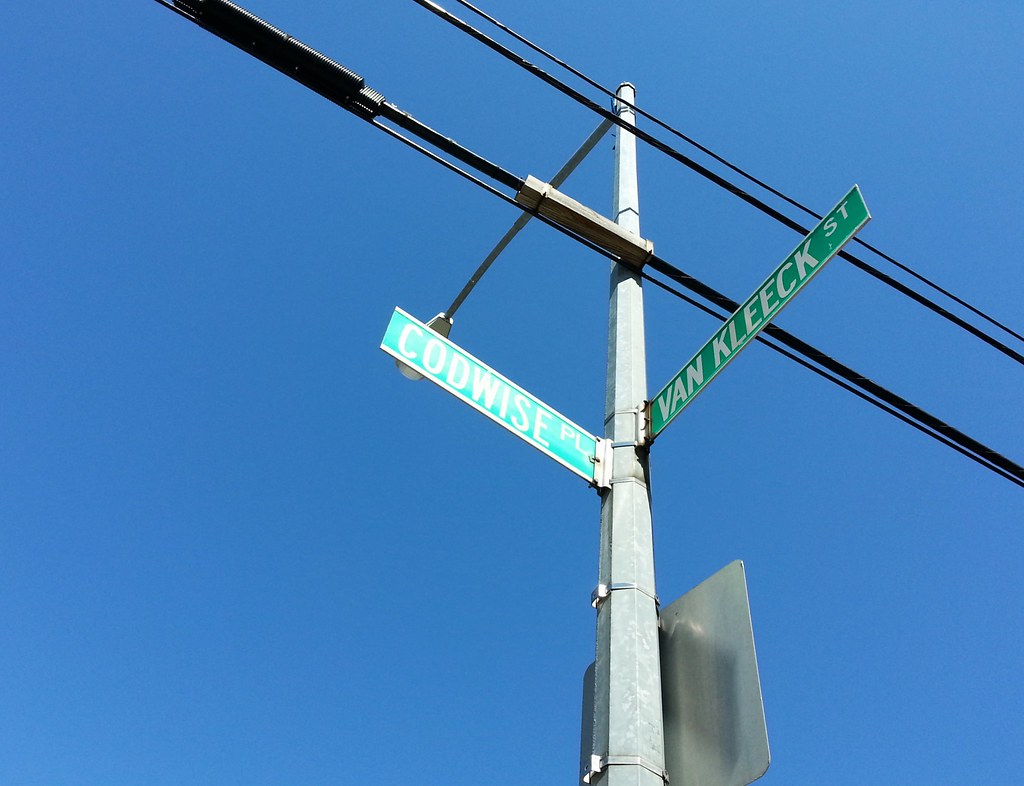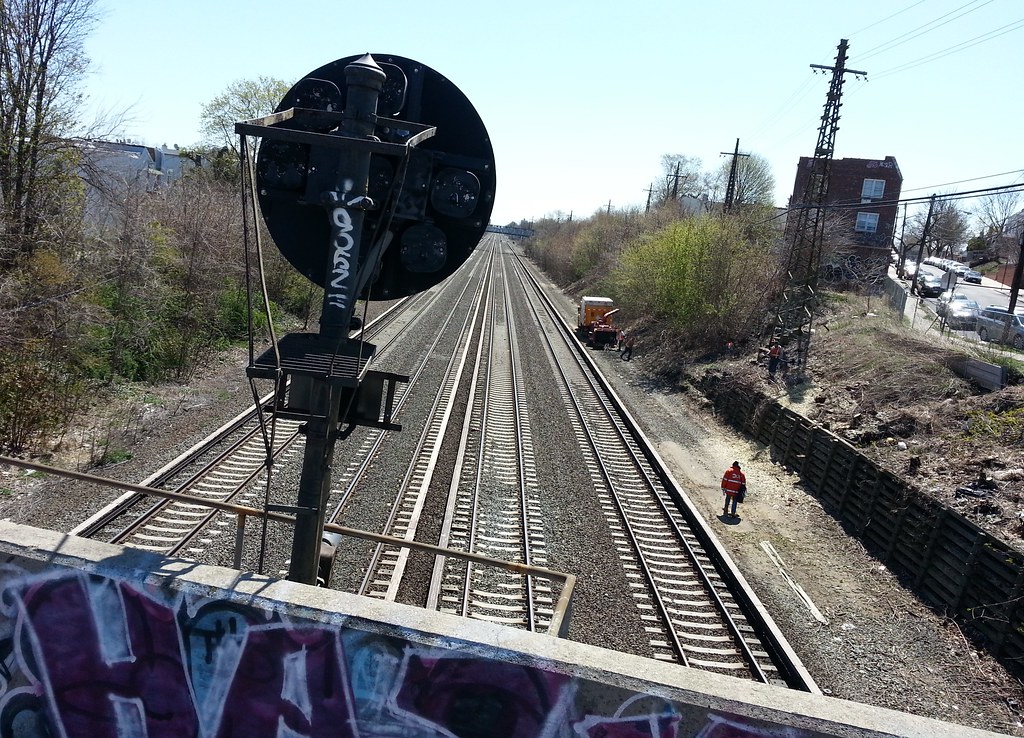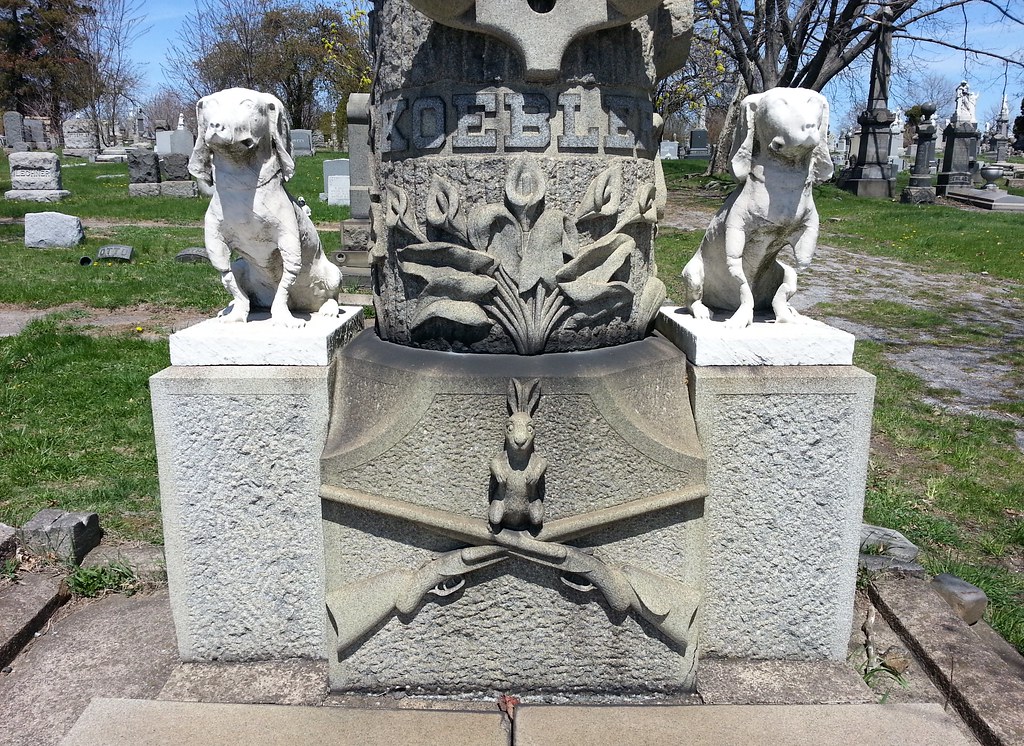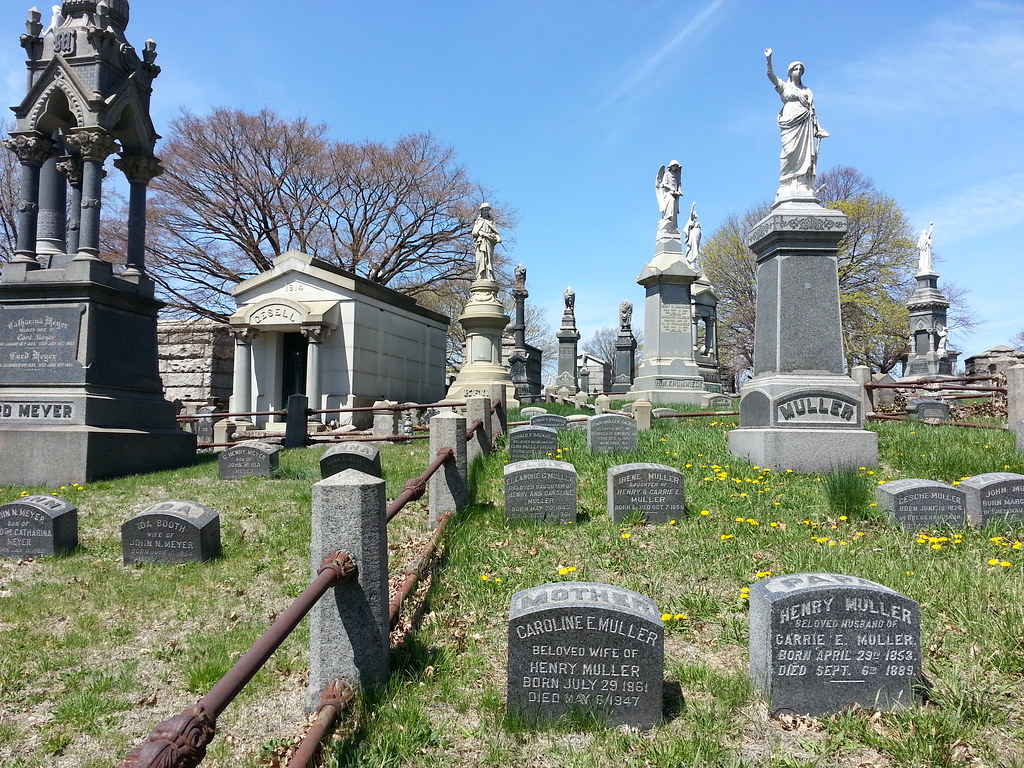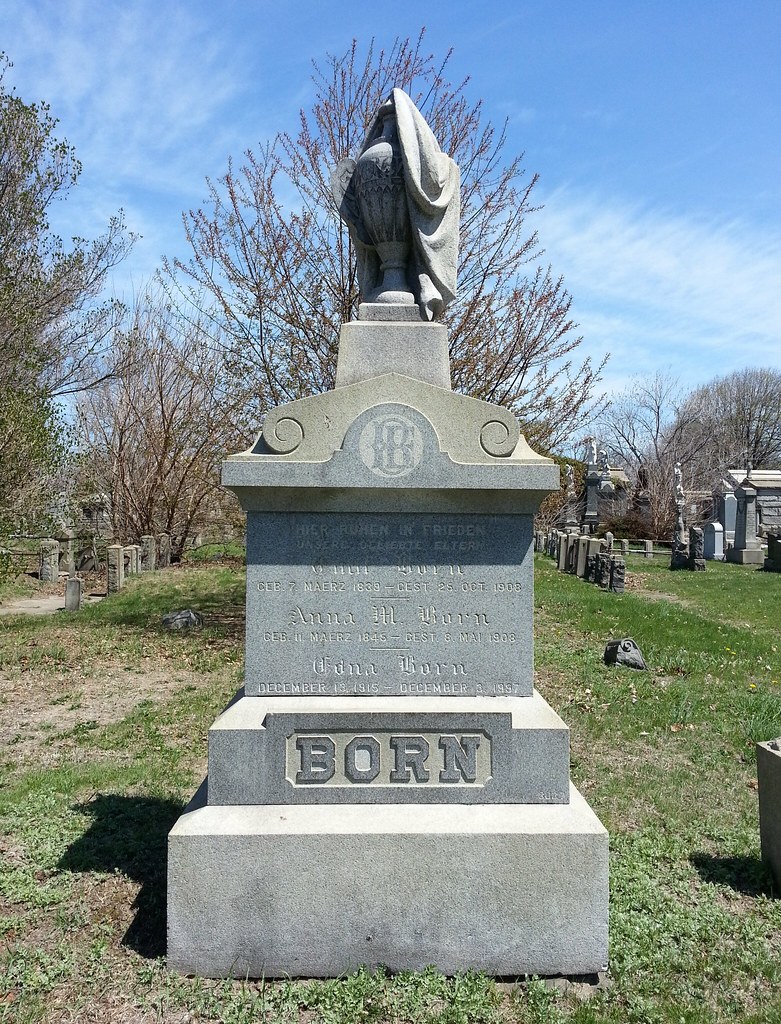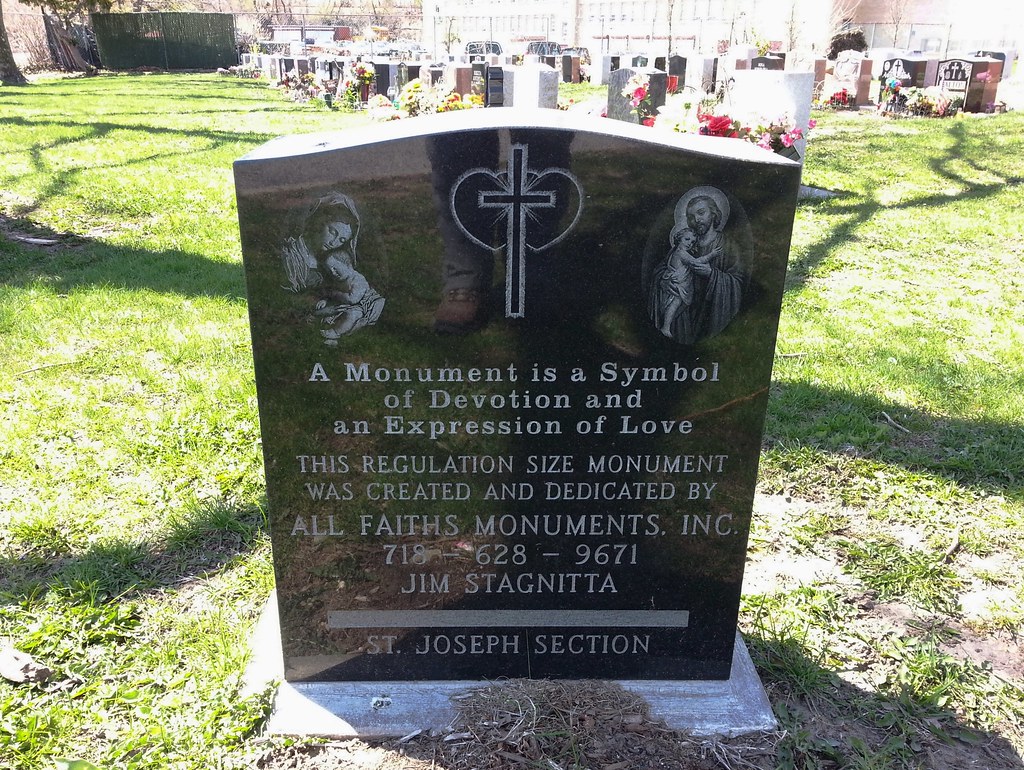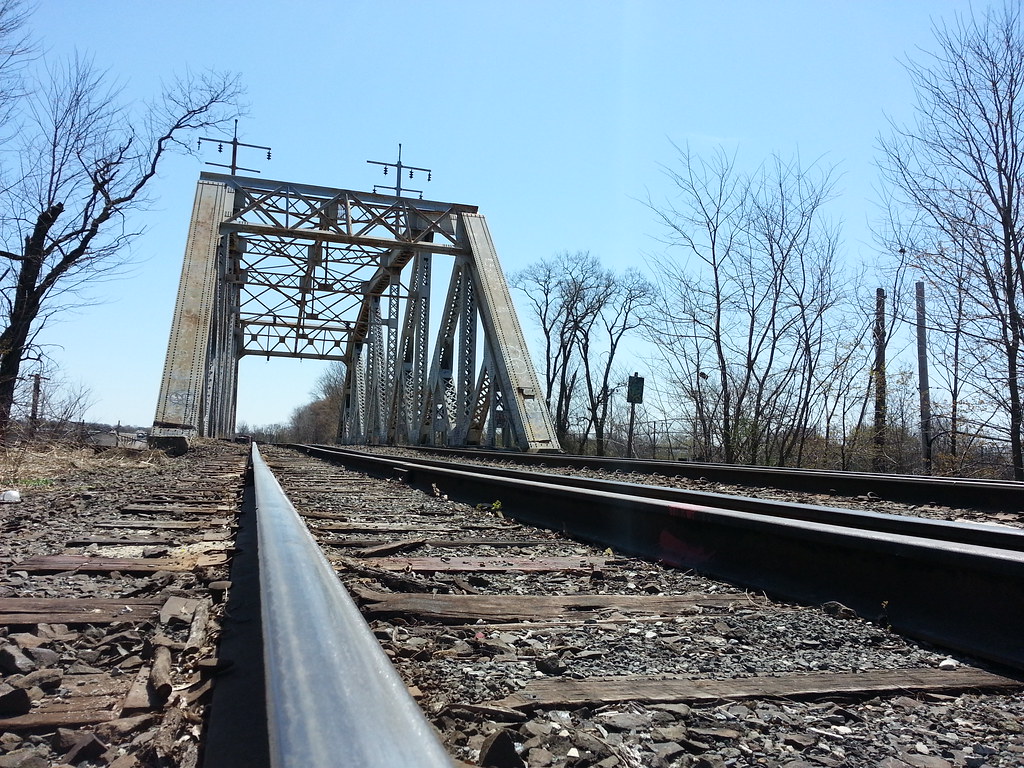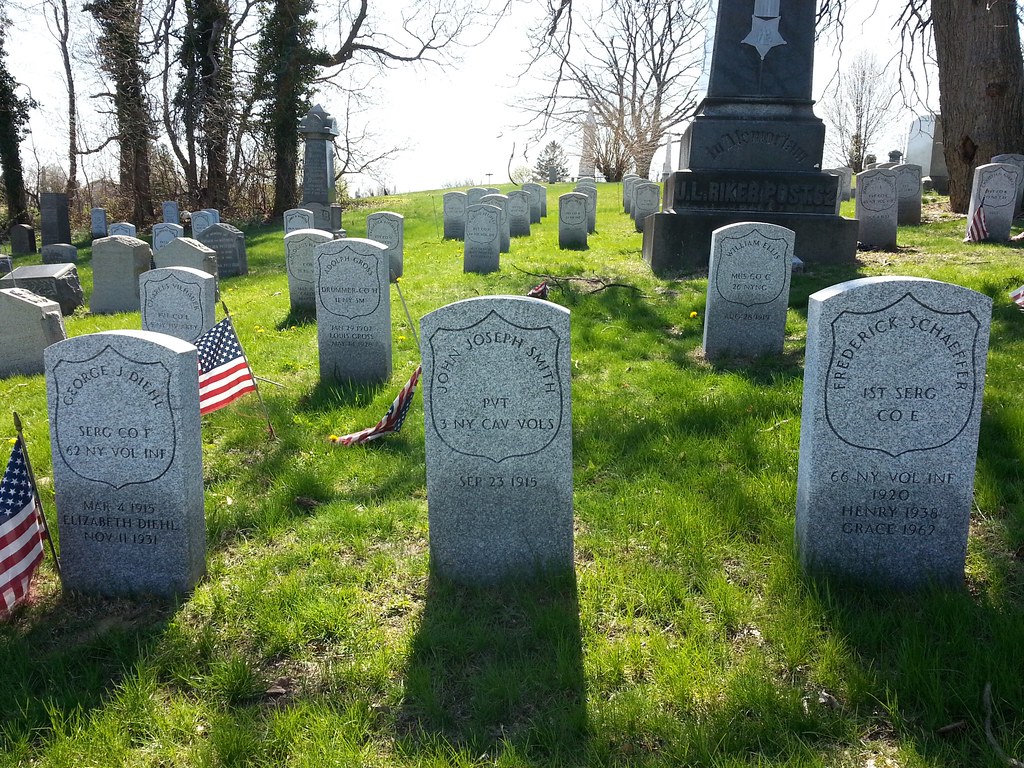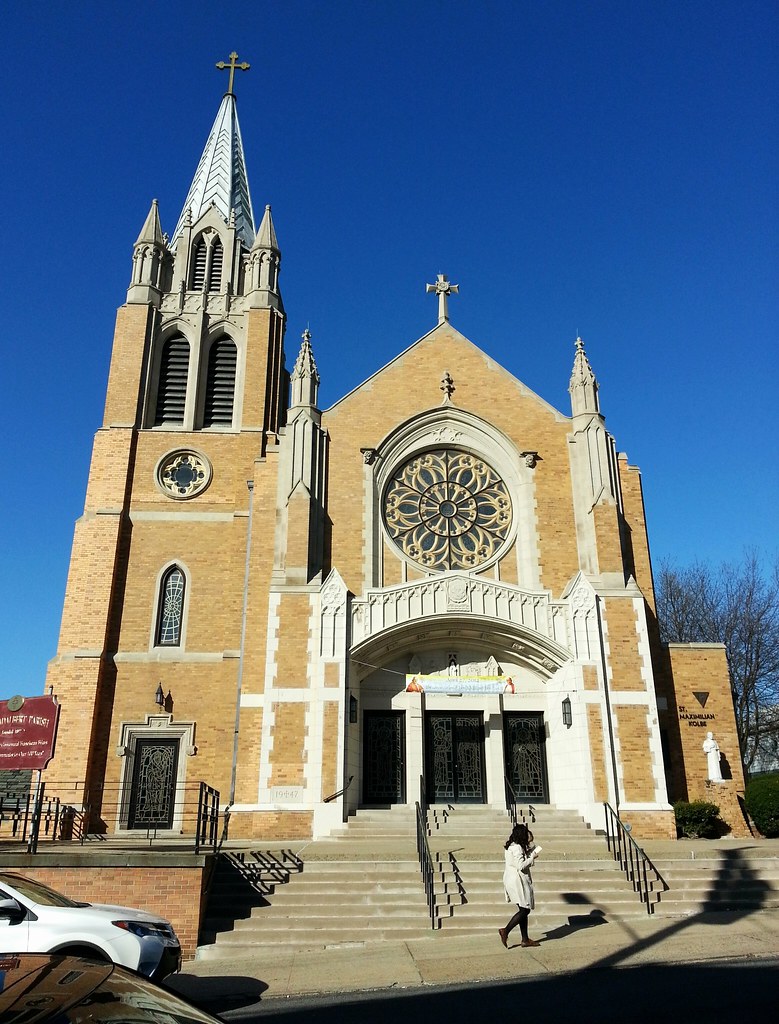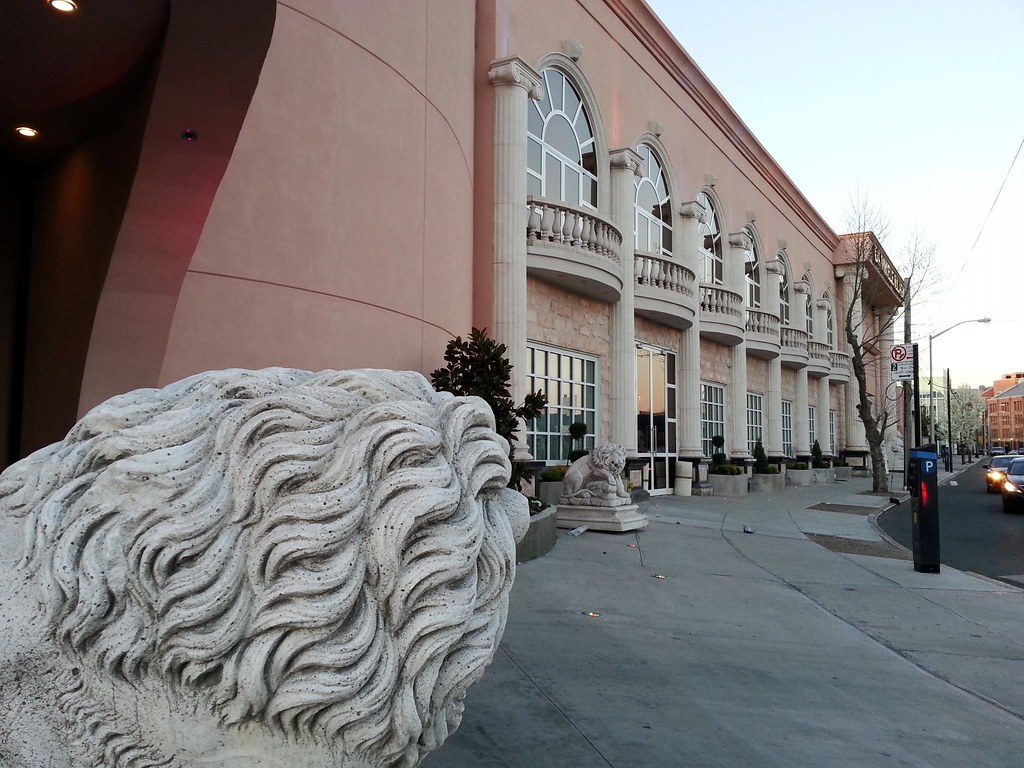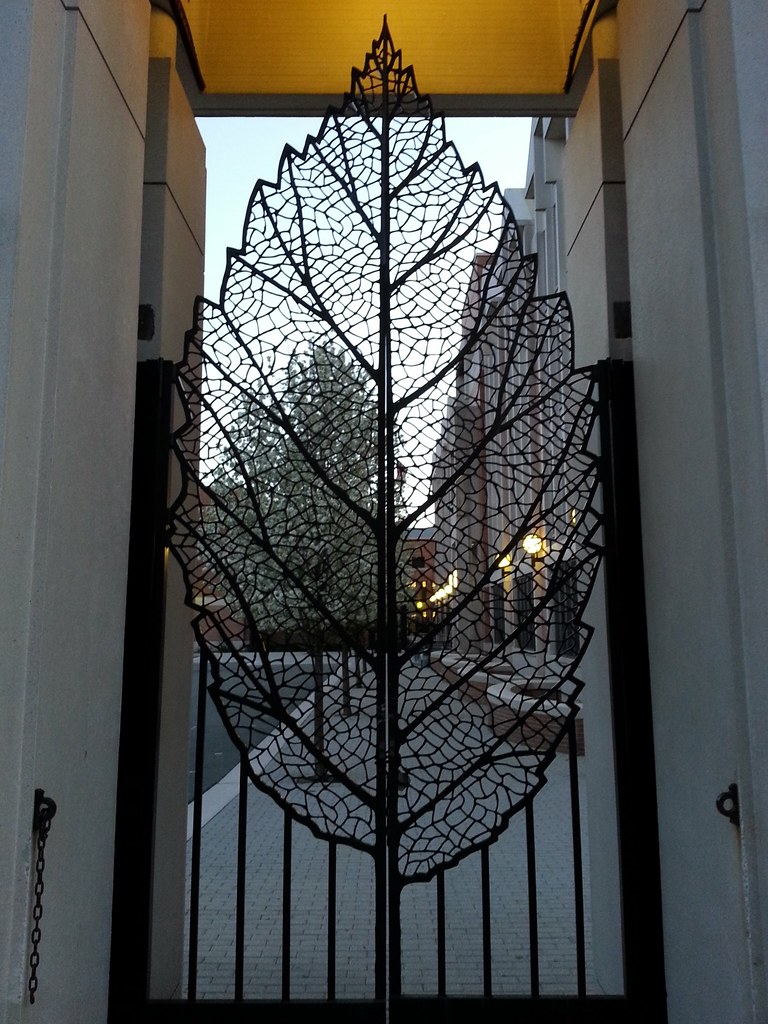
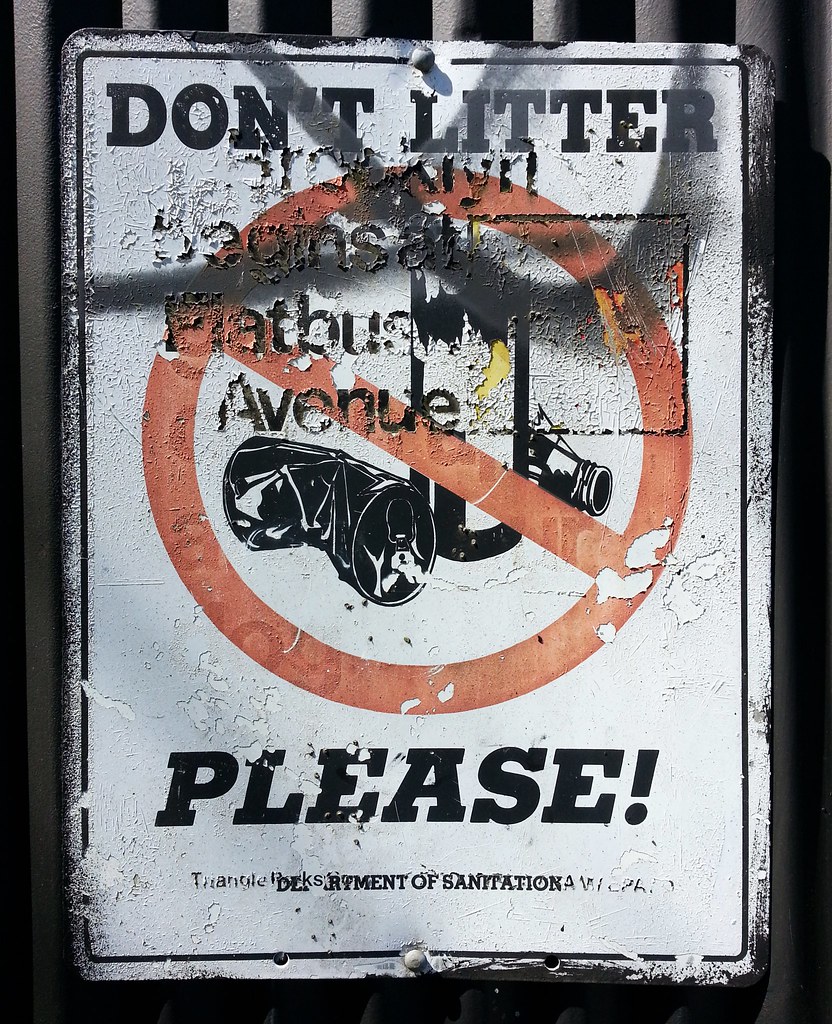
Currently mounted to a fence on a dead-end street in Elmhurst, Queens, this multilayered palimpsest used to be one of the Triangle Parks Commission's "Brooklyn begins at Flatbush Avenue" signs. And if you really look closely, you can find evidence of yet another past life: "leash, gutter and clean up after your dog".
The gas lamps that once illuminated the aforementioned Triangle parks — formerly utilitarian traffic islands converted into little parklets in the 1970s — were donated by Brooklyn Union Gas under the company's "Cinderella" program. (We previously learned that this program was the origin of the not-nearly-as-old-as-you'd-think gas lamps found in front of many Park Slope residences.) Coincidentally, Brooklyn Union was also the company that built the massive gas tanks (and traffic-report landmarks) that for decades stood just beyond where the sign above is now located, on land that has since become Elmhurst Park.

This guy and his chainsaw were dropping substantial pieces of tree branches (zoom in to see one in flight) directly above utility lines and into the street with nary a warning sign or orange cone in sight. (Actually, there were two cones in sight, but they were just sitting on the truck. Also, they were stamped with the Con Edison logo.)
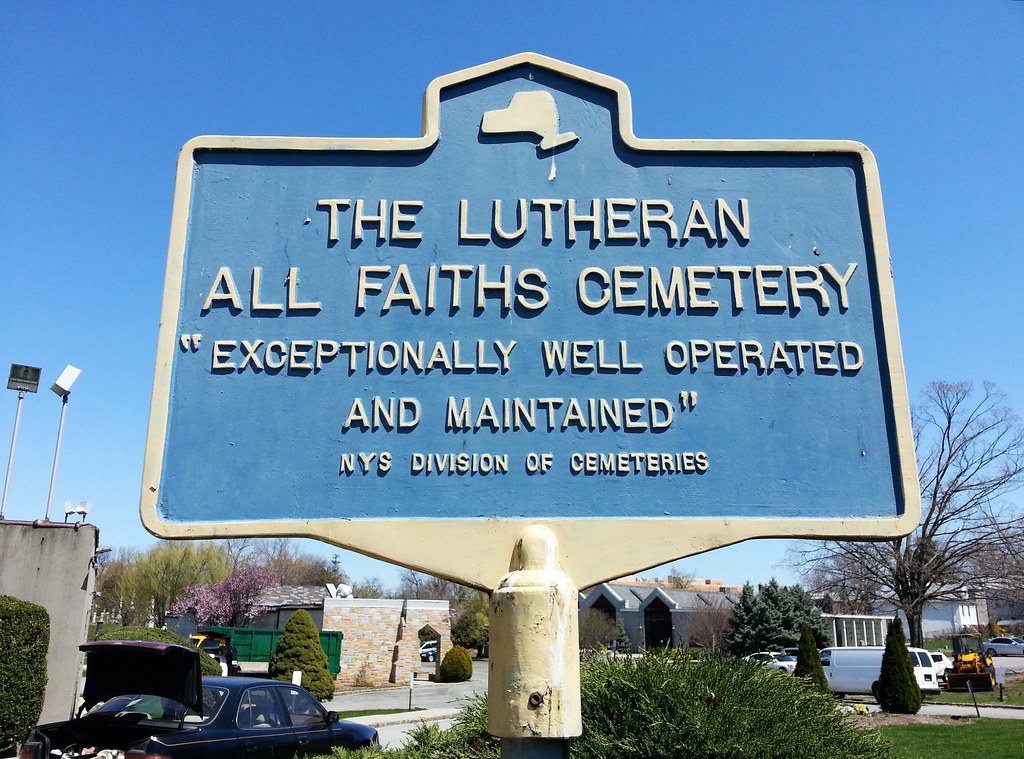
That's what the State Division of Cemeteries has to say about All Faiths Cemetery, originally known as the Lutheran Cemetery.

Structures like this were once used to temporarily store bodies until their burial sites were ready, sometimes for long stretches during the winter when the ground was too frozen to dig into.
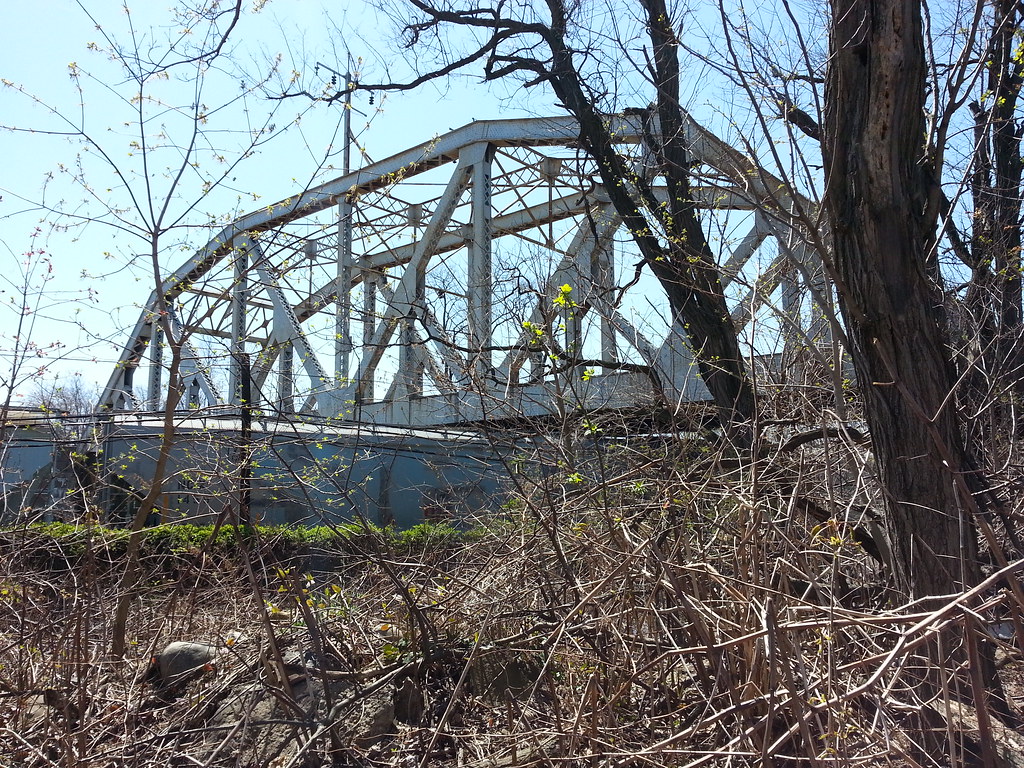
This Pennsylvania truss bridge, located right at the edge of All Faiths Cemetery, carries the southern end of the New York Connecting Railroad over the tracks of the Lower Montauk Branch at Fresh Pond Junction, Long Island's primary freight rail yard.

on the Lower Montauk Branch, located just outside the southern entrance to All Faiths Cemetery. The Long Island Rail Road ceased passenger service here and at four other stops on the line in 1998 (before eventually canceling passenger service on the line altogether in 2012), deciding the stations were too "lightly used" to justify paying for the improvements needed to keep them open. As a 1998 NY Times article put it:
"Lightly used" may be an understatement for Glendale station, which is actually two forlorn strips of pavement beside the tracks, with no signs, no timetables -- nothing, in fact, that suggests it is an official stop on the L.I.R.R.'s Montauk branch.
According to L.I.R.R. records, only two customers used the station each day: Ms. McDonald, who carries her lunch in a plastic bag, and Mr. Sullivan, with his Newsday tucked under his arm. Both work in Glendale. (Mr. Mueller, who rides the train to the Nassau Coliseum only when there is an Islanders game, does not show up on the daily passenger counts.)

Like his son Donald, Fred Christ Trump was a very successful real estate developer. (We've previously seen an old Depression-era supermarket he built.) Unlike his son, however, he had a reputation for modesty and frugality. According to his family, he would regularly visit his construction sites at the end of the day, still dressed in his suit, and would walk around collecting unused nails to make sure they didn't get wasted. He would also often handle the pest extermination duties in his buildings himself, just to save money. Here at All Faiths, there is only one indication that his gravesite belongs to a family of above-average means: while most of the footpaths in the cemetery are cracked and/or partially covered with dirt, the path leading to his headstone is very smoothly and freshly paved, but then quickly returns to oblivion once it passes the family's graves.
UPDATE: Okay, maybe Fred wasn't so different from Donald after all.
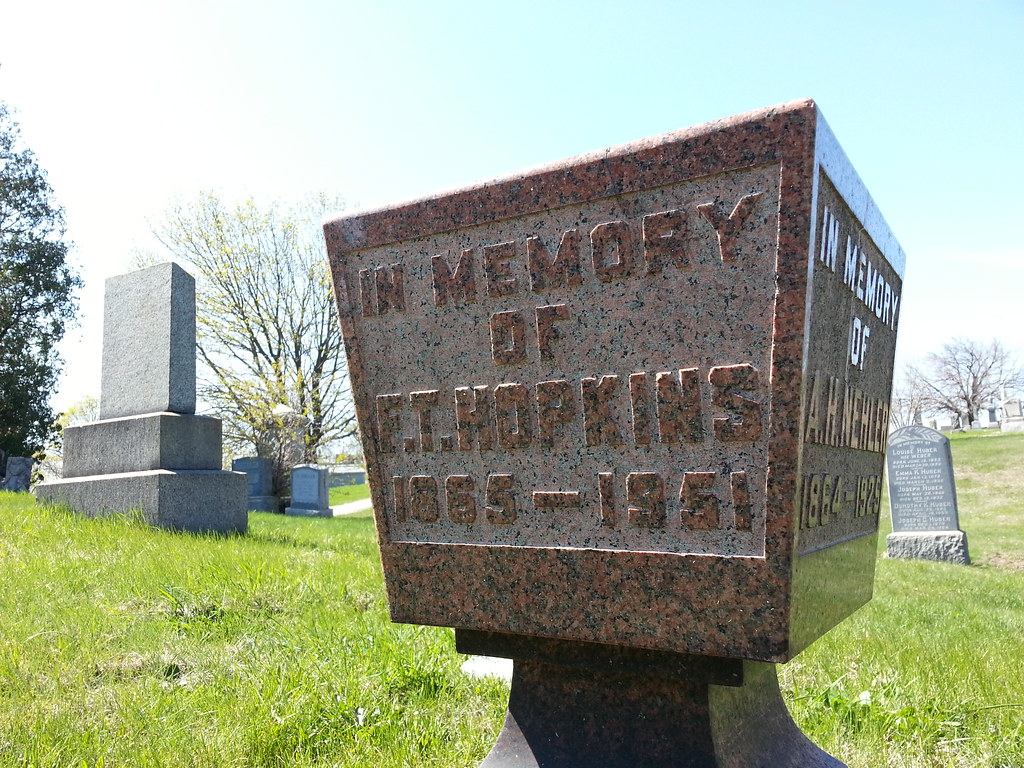
From a Slate article published in 2004:
In Hidalgo, which opens Friday, Viggo Mortensen plays Frank T. Hopkins, an American cowboy who takes his mustang overseas to compete in the Ocean of Fire, an endurance horse race across thousands of miles of Arabian desert. The trailer bills the Disney/Touchstone movie as an "incredible true story," and the tale of Hopkins' travels is certainly incredible. But is it really true?Read the rest here.
Well, there truly was a Frank T. Hopkins. He lived from 1865 to 1951, and in his memoirs, which he wrote in the 1930s and 1940s with his wife Gertrude, he exhibits plenty of cowboy swagger—he calls Buffalo Bill a stinking drunk and Sitting Bull a coward. He also claims that he was a long-distance U.S. Cavalry rider by age 12; the winner of hundreds of long-distance races all across America; a friend of Black Elk; a star in Buffalo Bill's Wild West show for over 30 seasons; and the first American ever to compete in—and win—the Ocean of Fire.
The problem is, each of these claims is demonstrably false.
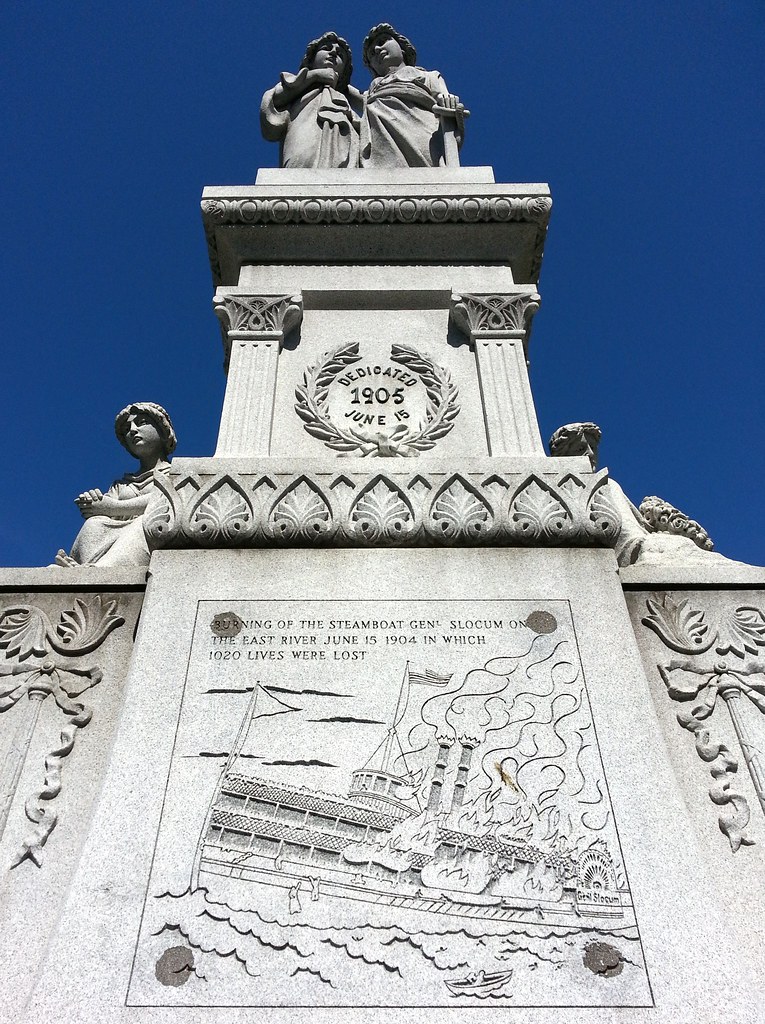
The burning of the General Slocum, an excursion steamer that was carrying residents of Manhattan's Little Germany to a church picnic when it caught fire in the East River in 1904, was NYC's deadliest disaster prior to 9/11. Many of the 1,021 people who died are interred here at All Faiths Cemetery (known at the time as Lutheran Cemetery).
The monument above is dedicated to the 61 unidentified victims, whose remains are buried in the surrounding plot. It was unveiled at a ceremony a year after the tragedy by the youngest surviving passenger, a little girl named Adella Liebenow, who would also go on to become the final surviving passenger prior to her death in 2004 at the age of 100. (Another survivor, a decade older, made it to 109 — both she and Adella were still alive when the twin towers fell.)

"Diffuse backyard tension between squirrels and wild birds with humor. . . . cleverly convert pesky squirrels into welcomed backyard comedians. You can't help but laugh the moment you witness a squirrel seated in his very own patio furniture eating corn."
What could be better than that? How about a horse head squirrel feeder: "Makes feasting squirrels look they're wearing a Creepy Horse Mask . . . Takes arrogant squirrels down a peg".

